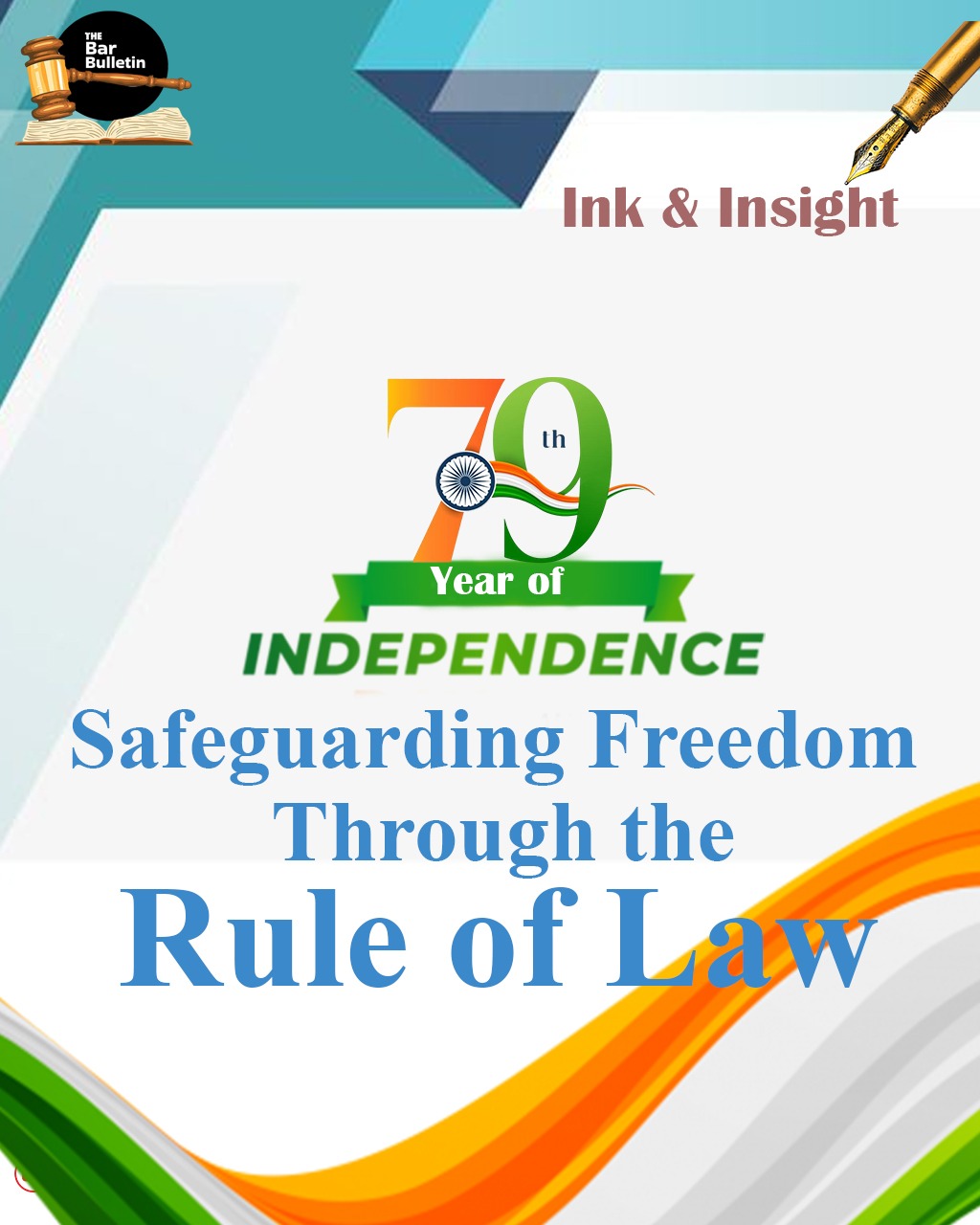As India marks 78 years of independence on August 15, 2025, our celebrations go beyond the memory of 1947, they embrace the continuing journey of constitutional democracy and the Rule of Law. The fight for freedom was not only against colonial rule but for a legal system where no one is above the law, and every citizen is protected by it.
From Political Freedom to Constitutional Safeguards
The adoption of the Constitution of India in 1950 transformed our hard-earned independence into a binding legal framework. Fundamental Rights (Part III), Directive Principles of State Policy (Part IV), and an independent judiciary embody the promise that liberty and justice will endure.
Articles 14, 19, and 21 together form the “Golden Triangle” of our Constitution, ensuring equality before law, freedom of expression and movement, and the right to life and personal liberty.
Judicial Guardianship of the Rule of Law
The Supreme Court has, through decades, reinforced that Rule of Law is a basic feature of the Constitution, immune from legislative or executive encroachment:
Kesavananda Bharati v. State of Kerala, (1973) 4 SCC 225 : Established that the basic structure, including the Rule of Law, cannot be amended by Parliament.
Indira Nehru Gandhi v. Raj Narain, 1975 Supp SCC 1 : Held that free and fair elections are part of the Rule of Law and basic structure.
Maneka Gandhi v. Union of India, (1978) 1 SCC 248 : Expanded the interpretation of Article 21, linking it to fairness, non-arbitrariness, and due process.
ADM Jabalpur v. Shivkant Shukla, (1976) 2 SCC 521 (later criticised and overruled) : Taught us that even in emergencies, fundamental freedoms must not be compromised, reaffirmed in Justice K.S. Puttaswamy v. Union of India (2017) 10 SCC 1 on the right to privacy.
State of Bihar v. Subhash Singh, (1997) 4 SCC 430 : Emphasised that access to clean water and environment is part of Article 21, showing the evolving reach of Rule of Law.
Rule of Law: More than a Principle
The Rule of Law is more than a legal doctrine, it is a living commitment that:
No person is above the law (equality before law).
All power must be exercised according to law (constitutional supremacy).
Rights must be enforceable through independent courts (judicial review).
A Continuing Responsibility
Independence is preserved not only on battlefields but also in courtrooms, legislatures, and the vigilance of civil society. Threats to free speech, social justice, and democratic institutions must be met with the same courage our freedom fighters showed now through legal advocacy and constitutional checks.
As Justice H.R. Khanna, the lone dissent in ADM Jabalpur, famously said:
“The Constitution is not a mere lawyer’s document, it is a vehicle of life, and its spirit is always the spirit of age.”



